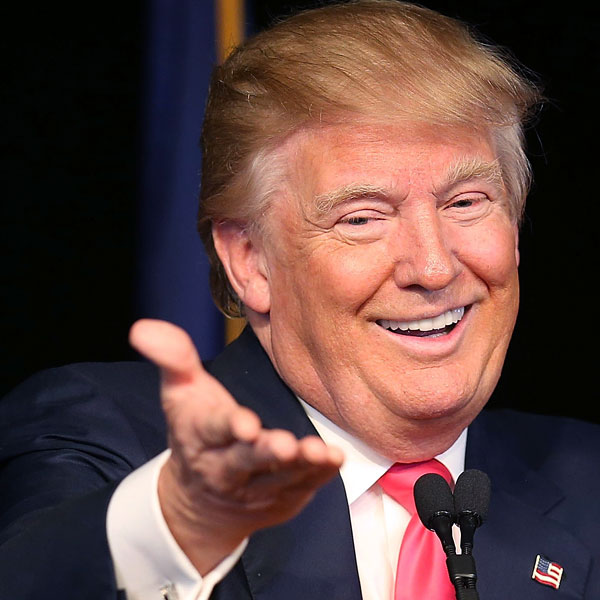
Donald Trump’s US election victory caused shockwaves on Mexican and Brazilian markets, with the countries’ respective currencies taking a battering.
And that could be a foretaste of things to come: not just the US’s so-called “backyard”, but emerging markets in general are bracing themselves for the economic effects of Donald Trump’s US election victory.
Mr Trump does not become president until 20 January, and so far, we know little about the economic policies that he will actually put into practice.
But analysts are watching for at least three factors that could have contradictory and clashing effects.
Protectionism
This is the big issue that caused the Mexican peso to plummet 12% against the dollar in the immediate aftermath of the election result.
It has since recovered a little, but the pressure on the currency has been severe since August, when Mr Trump began rising in the opinion polls.
It has already led the Mexican central bank to increase interest rates sharply and more rate rises are likely in future.
The fear is that Mr Trump will deliver on his campaign pledge for a complete renegotiation of the North America Free Trade Agreement (Nafta), which links the US with Mexico and Canada.
Since Nafta came into being in 1994, the Mexican economy has become ever more closely intertwined with that of its northern neighbour, and any changes to the agreement would have a wrenching effect.
However, any rewriting of Nafta would have to be approved by Congress and could not be enacted unilaterally by the president.
Elsewhere, the Brazilian real was also hard hit by Mr Trump’s victory, tumbling nearly 9% in four days.
However, there are signs that Brazil’s caretaker government is using the currency turmoil as cover for its plans to push through a series of key economic reforms, and in any case, the real is still higher against the dollar than it was at the start of the year.
Mr Trump has talked of imposing punitive tariffs on imports, particularly Chinese and Mexican ones. In the case of Mexico, he would not have to redraft Nafta in order to do this and would have more leeway to act by himself.
If the US does choke off trade with its neighbours in an attempt to curb imports and boost job creation, there could be unintended consequences in another oft-overlooked part of its “backyard”: the Caribbean.
Caribbean diplomats point out that although the US is the sub-region’s biggest trading partner, its biggest source of aid is now China.
Any damage to the Caribbean’s trade with the US would simply drive it further into the Chinese embrace. And if the US thinks communist Cuba is a big geopolitical problem now, they argue, then just wait until the whole English-speaking Caribbean is looking to Beijing instead of Washington.
Fiscal expansion
This part has some good and bad aspects for emerging markets.
In his victory speech, Mr Trump promised to give a big boost to the US’s ailing infrastructure, which he said would become “second to none”.
If this and other fiscal stimulus pledges gain the upper hand over his protectionist impulses, that could boost imports from other countries.
These two opposing tendencies reflect tensions in the minds of the voters who cast their ballots for the Republican candidate.
On the one hand, they fear for their livelihoods and see free-trade deals as a sure-fire way of destroying US jobs, by making it more profitable to move them overseas to lower-wage countries.
But on the other hand, as consumers, they benefit from cheap goods made in China and other big manufacturing countries.
So a booming US economy could help emerging markets by stimulating demand for their products.
On the other hand, if that demand overheats, the US Federal Reserve might have to take measures to cool it down, notably by raising interest rates – and that could cause another set of headaches for emerging economies.
Strong dollar
This is the flipside of the coin to the currency collapses seen in Brazil and Mexico. As the real and the peso weaken, so the dollar strengthens.
However, this could well turn out to be more than just a temporary blip.
If the pace of US interest rate rises starts to speed up, then this will fortify the value of the dollar, and that causes problems in poorer countries.
True, it makes their goods cheaper for US buyers, but many of them have substantial debt piles denominated in US dollars, so those will cost more to service in their own currencies.
Brazil and Mexico get off lightly here. Brazil certainly has a debt problem, but very little of it is denominated in dollars.
The same goes for Mexico. State oil company Pemex has debts in dollars, but it also earns in dollars too, since oil is priced in the US currency.
On the other hand, Turkey has a lot of foreign debt priced in dollars and would be vulnerable to a further strengthening of the dollar.
This has already had an impact on the value of the Turkish lira, which was in a bad way even before the US election, because the country’s political crackdown had led to capital flight.
And Mr Trump could also fuel currency wars by formally accusing China of manipulating the value of the yuan and keeping it artificially low, as he has previously alleged.
Whatever happens, the rising dollar is already the most visible economic effect of a Trump presidency, even before he takes office – and the effect may have only just begun.
Source: BBC.









